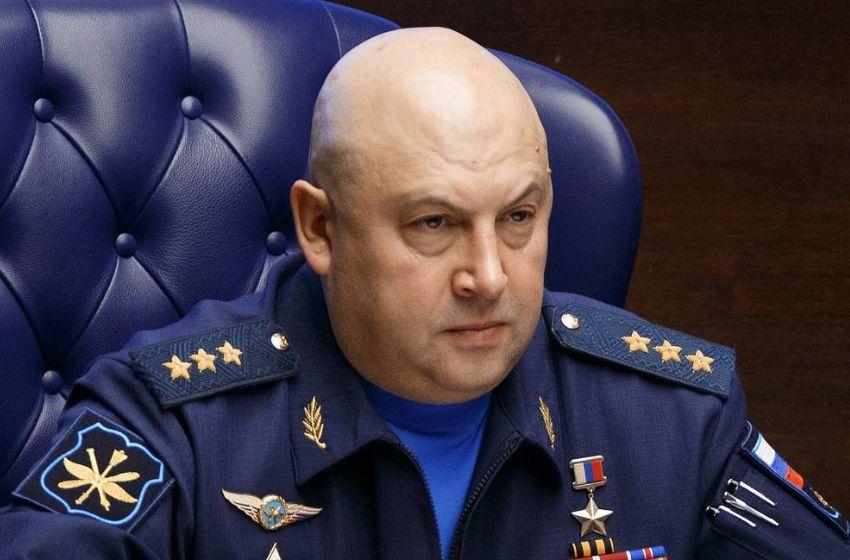Does Syria offer warnings for Russia’s Ukraine escalation?
Pundits say Putin’s appointment of new commander signals switch back to ‘bloody, destructive playbook’ from Syrian civil war

A free daily email with the biggest news stories of the day – and the best features from TheWeek.com
You are now subscribed
Your newsletter sign-up was successful
The appointment of a notoriously “ruthless” Russian commander to lead the Ukraine invasion has fuelled fears that Vladimir Putin is set to repeat his brutal tactics from the Syrian war.
Russia’s Defence Ministry announced on Saturday that General Sergei Surovikin had been appointed “commander of the Joint Grouping of Forces in the areas of the special military operation” – the Kremlin’s term for the invasion of Ukraine.
Surovikin is taking over following “the sacking of two Russian senior military commanders as Kyiv has won back territories lost to Russia in the northeast and south of Ukraine”, reported Al Jazeera. According to Politico, the appointment signals a desperate Putin’s “willingness to switch to ever more brutal tactics” and turn “back to his bloody, destructive playbook” from Russia’s 2015 intervention in Syria’s civil war.
The Week
Escape your echo chamber. Get the facts behind the news, plus analysis from multiple perspectives.

Sign up for The Week's Free Newsletters
From our morning news briefing to a weekly Good News Newsletter, get the best of The Week delivered directly to your inbox.
From our morning news briefing to a weekly Good News Newsletter, get the best of The Week delivered directly to your inbox.
Who is Sergei Surovikin?
Prior to his promotion, Surovikin was head of Russia’s southern military grouping in Ukraine. He previously served in Tajikistan and Chechnya, before making his name in Syria.
The veteran commander received the title of Hero of Russia for his role in Moscow’s intervention to prop up the regime of Bashar al-Assad, but was accused by Human Rights Watch of overseeing a bombardment that destroyed much of Aleppo.
A 2019 report on Russian military strategy by the Washington D.C.-based Jamestown Foundation think-tank said Surovikin was known for being “totally ruthless”. He has been jailed twice in his home country: first for six months after his command killed three protesters in the failed August 1991 coup that preceded the fall of the Soviet Union, and then for illegal arms trading.
He was “released without trial” after his first jail stint, and his second sentence was “later overturned”, Al Jazeera reported.
A free daily email with the biggest news stories of the day – and the best features from TheWeek.com
The Jamestown Foundation said that Surovikin’s “readiness to vigorously execute any orders trounced any potential questions about his checkered curriculum vitae”.
His fans reportedly include Yevgeny Prigozhin, founder of the Wagner mercenary group, which was heavily deployed in Syria. According to Russian news agency Live24, Prigozhin has described Surovikin as “a legendary person” and “the most competent commander in the Russian army”.
What does his appointment mean for Ukraine?
On Monday, just two days after Surovikin’s promotion was announced, Russian forces launched a barrage of rocket attacks against civilian targets across Ukraine. The bombardment followed Ukraine’s attack on the Kerch Bridge linking occupied Crimea to Russia.
“Russia has been reshuffling its forces in Ukraine as it tries to stem the losses it has been dealt as a result of a vigorous Ukrainian counteroffensive,” said Al Jazeera. The news site reported that “some observers believe Surovikin’s appointment signals that Russia will concentrate its war effort on one area”.
Will the change in tactics work?
Russia’s entry into the civil war in Syria “changed the course of it in the regime’s favour in one of its most successful military campaigns in recent times”, said The EurAsian Times. But “Ukraine is not Syria”.
Abhijit Iyer Mitra, a senior fellow at the Institute of Peace and Conflict Studies, told the news site that “the difference with Syria was that there were Syrian troops on the ground” who were “dying in combat” while Russia “mostly restricted itself to air campaigns against rudimentary to non-existent air defences”.
By contrast, Ukraine has been building up its military since the annexation of Crimea in 2014 and has received signicant supplies of advanced arms, air defence capabilities and training from the West in the seven months since the ongoing conflict began.
Russia is also facing a centralised and well-organised state-run military machine that has the full support of its citizen population. In Syria, Russian forces fought disparate and uncoordinated rebel groups who were often poorly equipped.
Dmitry Stefanovich, a research fellow at the Moscow-based IMEMO RAS think tank, told RT that Russian commanders had become overconfident following the Syrian campaign.
“Perhaps there was a hope that this format could be implemented in Ukraine, with limited forces and an emphasis on air power etc,” he said. “But practice has shown that not everything works this way.
“The enemy in Ukraine turned out to be completely different.”